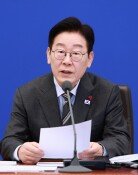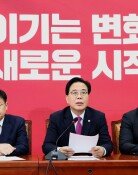[Editorial] Kim DJs Funeral Should Promote Natl Unity
[Editorial] Kim DJs Funeral Should Promote Natl Unity
Posted August. 20, 2009 08:21,
The government has discussed details of the state funeral for former President Kim Dae-jung with his bereaved family. President Park Chung-hee was assassinated in 1979 while still in office, so he also got a state funeral. Kim, however, is the countrys first former chief executive to get one. President Lee Myung-bak decided on a state funeral for Kim in light of Kims contributions to the nation and to use the event to promote social integration. The decision is very inspiring.
Under law, a peoples or state funeral can be held only when a former president or someone respected by the people for significant contributions to the nation dies. Evaluation of what Kim did for the Republic of Korea is mixed depending on who is asked. Nevertheless, he deserves a state funeral for his big contributions to national democratization, overcoming the currency crisis in the late 1990s, holding the first inter-Korean summit, and reception of the Nobel Peace Prize. Koreans of all political stances and regional backgrounds should consider Kims state funeral as a chance to ease regionalism and achieve social integration.
Kim was undeniably a pillar of domestic regionalism and ideological disputes before his death. In his final days, he failed to fill the gaps but set the basis for reconciliation and forgiveness on his deathbed. Former President Kim Young-sam visited his ailing political rival Aug. 10, ending 22 years of hostility and dispute after the two had a falling out. In succession, political leaders belonging to the factions respectively created by the two Kims in the 1970s promised to closely cooperate to eradicate regionalism. President Lee, whom Kim Dae-jung criticized after former President Roh Moo-hyun committed suicide a few months ago, also visited Kim Dae-jung in the hospital. Chun Doo-hwan, the military strongman who was a major sore for Kim Dae-jung when he was president, also made a visit to the hospital. Koreans were impressed that many politicians of all parties and ideologies visited the ailing former president, who was hospitalized for 37 days.
Korean politicians should consider Kims state funeral as a chance to reflect on their old-fashioned practice of region-based politics and united the peoples energy to advance the nation. In his congratulatory speech on Liberation Day, President Lee suggested revamping voting and administrative districts nationwide, and this is possible only when regionalism is overcome. Eradicating regional disputes is a prerequisite for Koreas further growth. Kims state funeral is hoped to encourage Koreans to lean toward reconciliation and integration and make an all-out effort for harmony.







